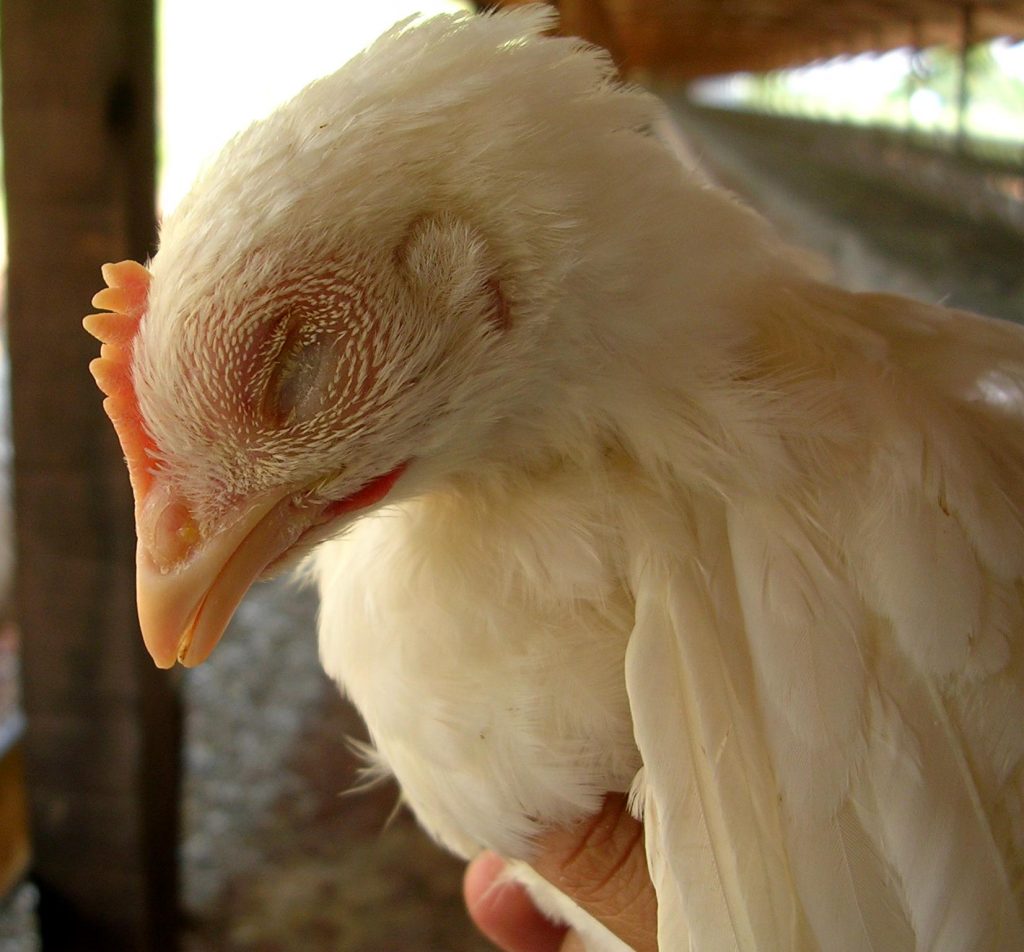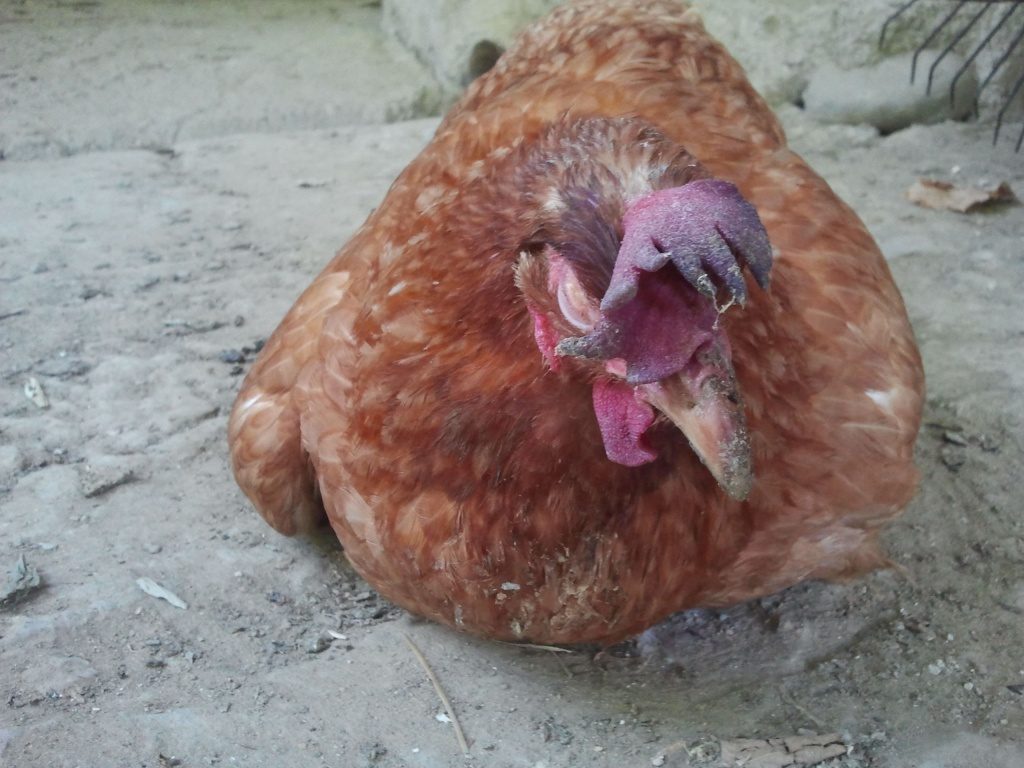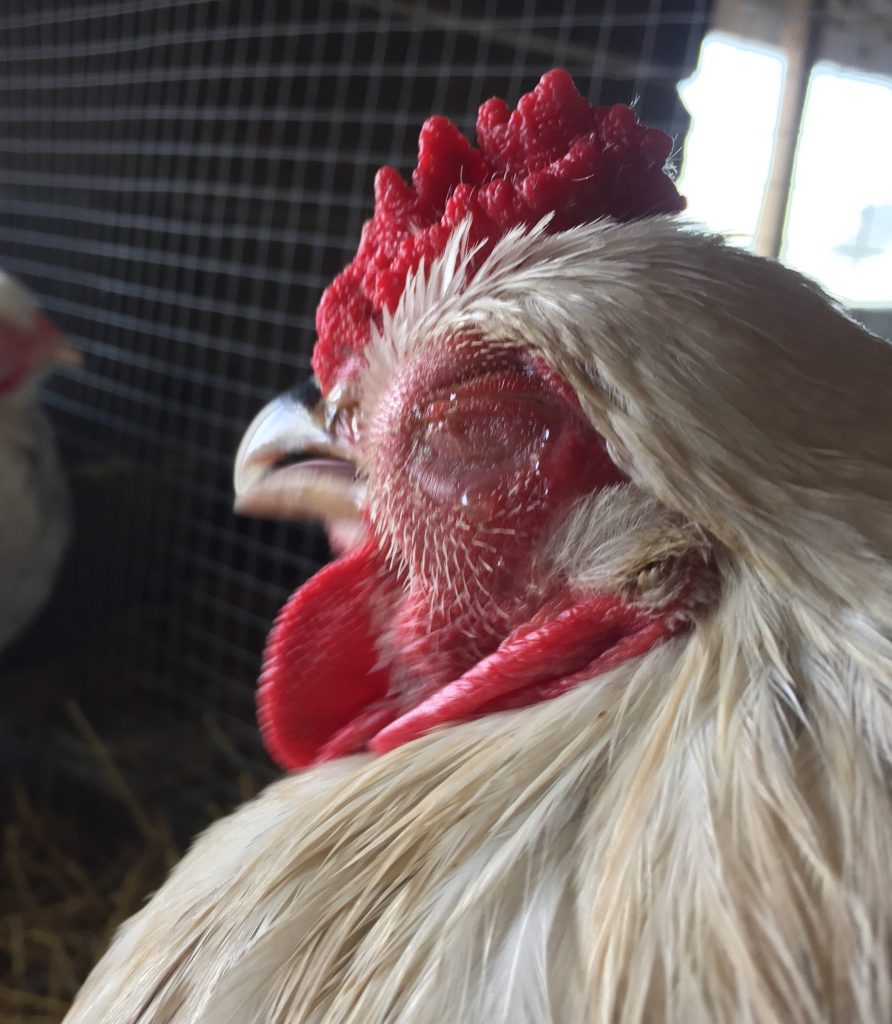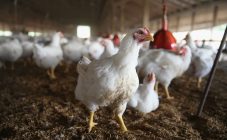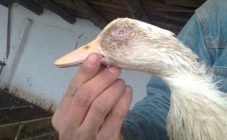Content:
Farm-raised chickens are prone to a variety of ailments. You need to constantly monitor their diet, living conditions and health. They, if necessary, will need to be vaccinated. Sometimes antibiotics will be needed.
General information about chicken breeding
Depending on the breed and direction of the chickens, it is possible to keep them in cages or free-range, feed them abundantly, or, conversely, severely limit the amount of feed so that they do not get fat. However, general guidelines include:
- Keeping animals in relatively warm conditions, without excessive air humidity and drafts.
- Feeding them enough food. A balanced meal containing vitamins and minerals.
- Monitoring their health.
Night blindness in chickens: symptoms and treatment
Home-bred birds are prone to disease. Due to their crowded content in the premises of the chicken coop, diseases quickly spread throughout the livestock and lead to death. Diseases of the organ of vision among birds are quite common. Animals cannot cope with such problems, so the breeder needs to know exactly about the symptoms and treatment of ophthalmic diseases in chickens.
Why do chickens have eye problems? The most common reasons:
- Mechanical damage to the eye or eyelid. Roosters of some breeds are characterized by a pugnacious character, therefore, they often damage their eyes during fights.
- The presence of a foreign object in the eye.
- Neoplasms, warts and tumors.
- Lack of vitamin A in absorbed feed.
- Eye problems caused by improper bird keeping (low temperature, humid environment, dirty room, wind).
- Viral diseases (in this case, blindness is one of the manifestations).
At the same time, viral infections are characterized by a high rate of spread across the bird population, leading to the death of the herd.
Tumors
In chickens, neoplasms or tumors most often appear on the lower eyelid and their size increases dramatically. They are formed as a result of chronic swelling of the eyelids. The cause of the tumor is extremely difficult to reliably establish. Most often, experts are inclined to believe that the reason lies in the wrong conditions for keeping the livestock.
Symptoms of lower eyelid tumors include:
- Redness of the mucous membrane of the eye.
- The eyes swell, there is a significant amount of swelling.
- A mucous fluid is secreted from the eyeball.
- The tumor covers part of the eye.
When a chicken has a swollen eye, general disorders occur, the animal becomes lethargic, inactive, refuses food. The skin of the eyelids becomes significantly thinner.
Conjunctivitis
Inflammation of the protective membrane of the organ of vision and eyelids occurs for the following reasons:
- mechanical damage;
- long exposure to drafts, wind, dust getting into the eyes;
- poor indoor conditions - high humidity, lack of fresh air;
- viral or bacterial infections.
The manifestations that occur with conjunctivitis are similar to the symptoms of many other diseases, but the following are distinguished from them:
- overflow of eyelids with blood;
- swelling of the eyes (they will fester);
- chickens will rub their eyes on hard surfaces due to itching;
- tearing;
- complications with raising the eyelids;
- in this case, general changes in behavior occur (lethargy, appetite disappears, vision deteriorates).
Salmonellosis
Most often, night blindness appears in birds due to an infectious disease - salmonellosis. This disease is dangerous for humans, so it is necessary to accurately determine what the animals are sick with.
The most common signs of salmonellosis are:
- The chicks lose their appetite, they become weak and lethargic.
- The plumage gradually falls out, shortness of breath appears.
- In adult animals, lameness appears, productivity decreases.
- The scallop and beard turn pale, the feather cover is ruffled.
- Birds often have diarrhea, they can crumple.
- Night blindness appears.
Other causes of blindness include vitamin deficiency. Vision problems arise due to a lack of vitamin A. Moreover, its lack or absence causes conjunctivitis, which causes night blindness. In addition, animals become much weaker, lead a sedentary lifestyle. Signs of inflammation of the conjunctiva leading to night blindness are:
- Change in color of the palpebral fissure. It will turn bright red.
- Whitish blockages in consistency, resembling cottage cheese, will appear on the eye.
- The appearance of minor ulcers, swelling of the eyelids.
Stagnant rhinitis also leads to night blindness. It is caused by a specific bacterium that lives in the waste products of chickens. When the livestock is affected, chickens and chickens become very lethargic, breathing problems begin, and mucus is released from the nose. Wheezing appears. If the chicken is sluggish, closes its eyes and breathes badly, it is definitely sick.
Eye diseases due to trauma
Mechanical damage due to fights or accidental contact with plants or household items leads to the appearance of small wounds that become inflamed when foreign objects enter it.
Symptoms:
- swelling (the eyelids will turn bright red);
- a small hematoma, possibly bleeding, chickens will huddle together;
- the release of a large number of tears (they will flow even in a dream).
If the chicken's eye is closed as a result of mechanical damage, it is necessary to clean it and apply tetracycline ointment to exclude the possibility of inflammation.
Xerophthalmia
It occurs due to a violation of metabolic processes. The epidermis of the eyelids gradually dies off or becomes horny. The lacrimal glands are affected, the secret from them does not reach the destination points, which leads to thinning of the cornea.
Symptoms:
- dryness of the cornea, gradual detachment;
- swelling of the eyelids;
- swollen eyes.
Ammonia blindness
Occurs due to poor conditions of detention. Typical for the younger generation of chickens. Ammonia blindness is caused by excessive amounts of ammonia in the air. This occurs due to a prolonged lack of disinfection or during rare, irregular cleaning.
It is characterized by inflammation of the mucous membranes and the appearance of discharge from the nostrils. The disease reduces the rate of growth, leads to blindness, abnormal development.
Panophthalmit
It is an inflammation of the optic organ. May lead to organ destruction. The causes may be infections or other organ problems. Symptoms:
- turbidity in the iris;
- gradual detachment of the cornea;
- the appearance of bleeding.
Chickens don't open their eyes
The problem may arise due to stress when feeding, too bright light.The eyes of chicks can be damaged by excessively bright rays of light, which is why it is constantly kept closed. Blindness of this kind occurs, as a rule, when using bright lamps in artificial lighting devices. Closed eyes eventually swell and swell; in order to open them, it is necessary to diversify the diet of the cubs with foods containing vitamin A.
What to do and how to treat
Treatment of eye disease in chickens is carried out after the diagnosis is made. In most cases, treatment will require a change in the bird's diet, improvement of feeding conditions. In addition, treatment should be symptomatic.
In the early stages of conjunctivitis, it is enough to rinse the affected organ with tea or specially designed drops, and provide vitamin preparations as concomitant measures.
In later stages, if the chicken's eyes are no longer open, it is necessary to separate the sick bird from the rest of the livestock and call a specialist. You will have to be treated with boric acid washing. It is necessary to give the sick chicken a solution containing vitamin A. Treatment of conjunctivitis in chickens can be carried out using tetracycline ointment applied to the pulled lower eyelid.
What to do when a chicken's eye closes with a tumor? Treatment for neoplasms will require surgery. Only a veterinary specialist can carry out such treatment. Surgical intervention consists in cutting out the membranes of the neoplasm, followed by processing the eye. During the rehabilitation period, it is necessary to observe the animal, if necessary, flushing the organ with a solution of boric acid.
If a foreign body gets into the eye, if the chicken's eye does not open, it is necessary to carefully remove it (by yourself or by calling a specialist). In this case, the easiest way is to use tweezers. This intervention is often performed under general anesthesia. After the procedure, it is necessary to cleanse the eye with any antiseptics.
Prevention and advice
What if the chicken is blind? With a complete loss of the eye, the bird can only be finished off. This will have to be done in any case, otherwise the chicken will drastically lose weight and will not recoup the costs of growing it. Most often, infectious diseases or improper maintenance lead to blindness.
To reduce the likelihood of blindness, it is necessary to regularly disinfect and clean the poultry house, to fully feed the livestock.
In order to prevent infections, it is advisable not to keep the birds in close quarters, to walk and feed with the recommended mixed feed, to which it is advisable to add finely chopped grass, dairy products, shell rock and wet mash.

